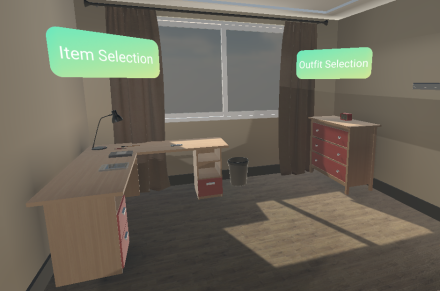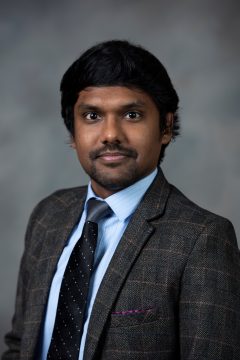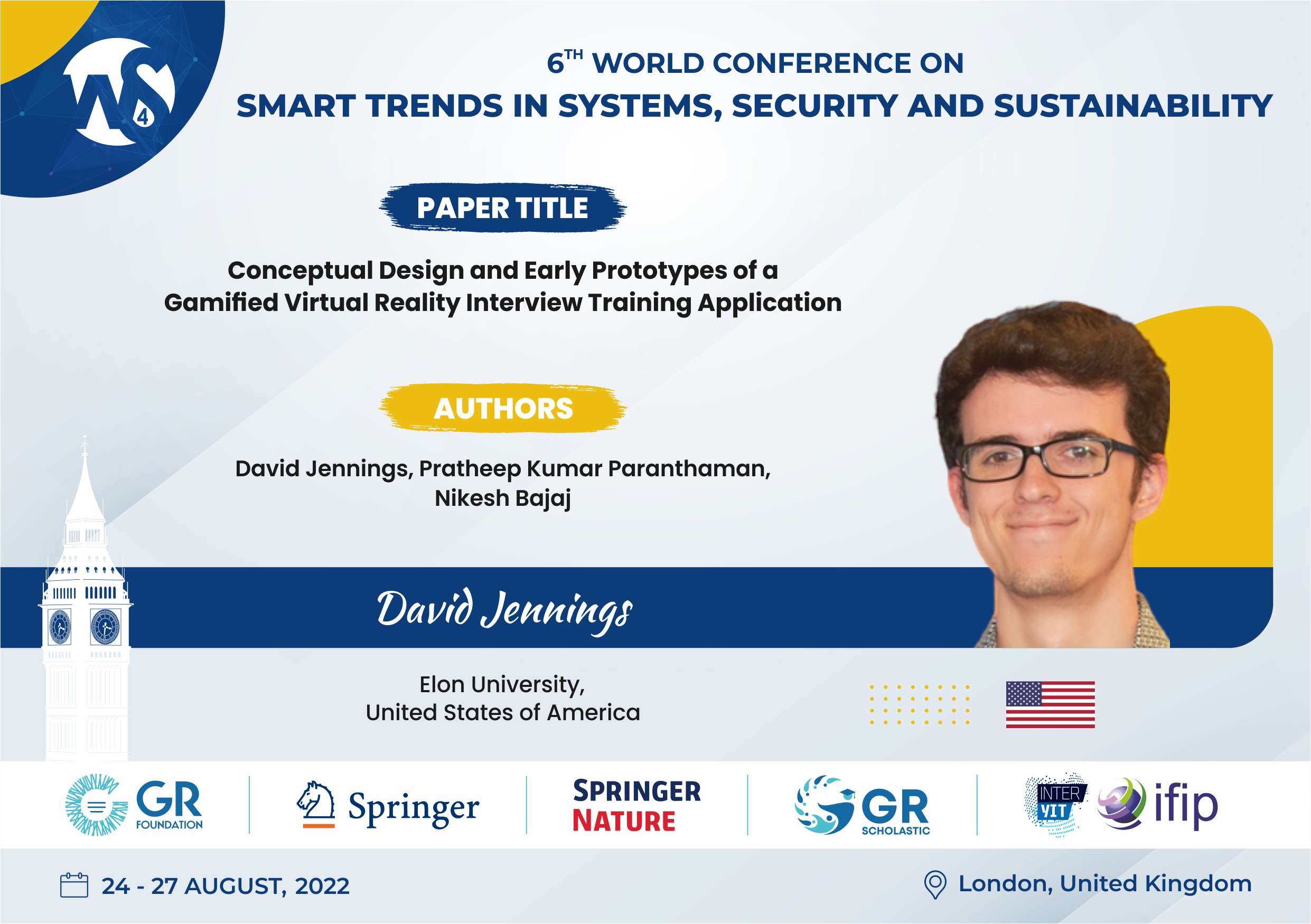A computer science major and game design minor, Jennings presented his games research project at the World Conference on Smart Trends in Systems, Security, and Sustainability in August with Assistant Professor of Computer Science Pratheep Paranthaman.
What if playing a game could help you land your dream job?
This is the question David Jennings ’23 is exploring as he creates and tests a virtual-reality game designed to train users for the job interview process. Players level up by scoring well in areas like researching the company and position, collecting materials to bring into the interview and following up afterwards.
With Assistant Professor of Computer Science Pratheep Paranthaman as his mentor, Jennings is exploring the concept of gamification — using games in a non-gaming context — to motivate users. They will study user interaction in the spring, including using EEGs to measure brain activity to identify stressful or exciting aspects of the game and interview process.
“We’re trying to see how gamification affects different applications and using the framework of a job-interview application,” Jennings said. “We want to identify specific aspects of gamification that help people prepare for interviews, to find what’s effective and what’s not and point the way for future applications to take inspiration from this research.”

Jennings, a computer science major with a game design minor, is also an Elon College Fellow and Odyssey Scholar. He embarked on the research as part of the College Fellows program, which culminates in a closely mentored, two-year research project. He presented his research paper, “Conceptual Design and Early Prototypes of a Gamified Virtual Reality Interview Training Application,” virtually at the sixth World Conference on Smart Trends in Systems, Security and Sustainability held in London on Aug. 27. Jennings previously presented his research in SNCURCS (State of North Carolina Undergraduate Research and Creativity Symposium) in fall 2021.
As part of the development process, Jennings designed an initial prototype system in virtual reality. While studying abroad in Copenhagen this semester, Jennings is in the process of refining the system for a complete VR experience.
He began his project in spring 2021 after participating in a VR research project also mentored by Paranthaman.
“That was my first experience with VR technology and the inspiration for my own research,” Jennings said. “We looked into areas where VR is used outside of gaming. There are tons of venues for health education” for nursing and medical professionals. “Almost everyone goes through a job interview and a lot of people aren’t sure what to expect, especially if it’s their first interview.”
Paranthaman has been an ideal mentor, Jennings said, giving him the freedom to explore areas of interest while remaining available when questions or hurdles arise.
“He’s been able to guide me without holding my hand,” he said. “I’ve improved as a researcher and a programmer because of him.”
Jennings’ accomplishments are the result of his ambition and work ethic, Paranthaman said.

“David has been instrumental in developing this research idea from the ground to a functional prototype,” Paranthaman said. “At the start of the research process, he had a vision and equipped himself with the resources — such as learning about the state-of-the-art research and development process — to transform the vision into a working system.
“Virtual reality development is a challenging area with multiple complications, such as device configurations, ever-changing software versions and usability factors. David worked with all these constraints and adapted himself toward the challenges in this research and constantly progressed to the outcomes he envisioned.”
Jennings is planning a career in game design and programming.



